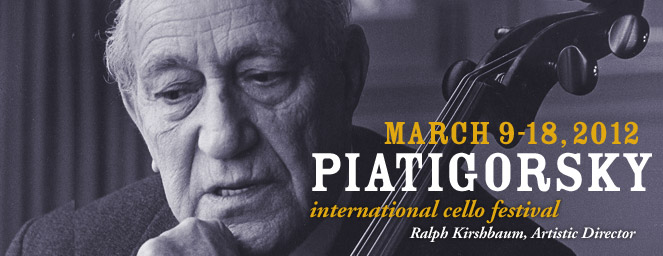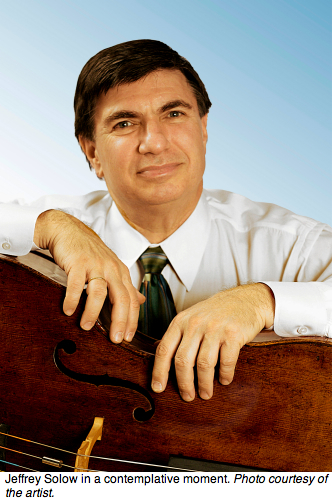
It was yet another high point of the Gregor Piatigorsky International Cello Festival: Four famous cellists, who had studied with the great Russian master before his death in 1976, played one after the other for two hours at the University of Southern California's Newman Recital Hall. It was Monday night (March 12), and when Nathaniel Rosen, Laurence Lesser, Raphael Wallfisch and Jeffrey Solow were through, "Grisha" Piatigorsky was definitely in the house.
In fact, Lesser, Solow and Terry King, also a student and who preceded the concert with an illuminating presentation, were virtual classmates of mine in the L.A. area. I met Piatigorsky on a few occasions, and shared the attraction he had for my friends. There was no doubt in any of our minds that Gregor Piatigorsky, by dint of his transcendent talent for the cello and the size of his embrace, made him its eternal troubadour, never to be equaled.
By luck and circumstance, Piatigorsky reigned supreme just before 20th century composers and players expanded exponentially the instrument's technique and repertoire and perhaps diminished its likability. Piatigorsky was the one who first showed the public, and the composers themselves, the full power and glory of the violoncello, as it fully called. He had unearthed the full beauty of the instrument, and lived ever after in a state of grace.

The musical program, attended by a full house of enthusiastic students and colleagues, caught the essence of the musical environment that nurtured Piatigorsky and which he brought to the fullest flower: an omnivorous appetite for concertos, solo sonatas and chamber music, and an incongruous love for sentimental trifles and arrangements. He made everything he touched special, as did each of the cellists on the recital.
Impassable, stony-faced Rosen flamed with the tangible intensity of the mid 1930s embodied in Darius Milhaud's manic Cello Concerto No. 1 (1934). The erudite Lesser, waving a shock of wild hair, was as commanding and lyrical as Richard Strauss's ponderous Cello Sonata Opus 6 has any right to be. Wallfisch sang his heart out in a transcription of obscure Belgian romanticist Guillaume Lekeu's ecstasy-drenched Violin Sonata in G Major. Solow finished off the crowd with incandescent readings of lollipops by Boccherini, Prokofiev, and Carl Davidov, grandfather of the Russian cello school. It was totally insane, and the audience was shrieking at the end.

Preceding the recital, King's multimedia chronicle of Piatigorsky's formative years and repertoire sounded like a David Lean movie: Born in 1903, Grisha became his family's breadwinner when he was six, and was forced from home onto the streets of Moscow at 11. He survived by becoming a professional musician, which he accomplished through long years of study and enterprise.
He also had the great fortune to have come along at a time when a genius could be named first chair in a major orchestra without having to go through a players' committee. It happened to Piatigorsky a number of times including Moscow's great Bolshoi Theatre when he was only 15, and legendary conductor Wilhelm Furtwängler's Berlin Philharmonic eight years later.
It makes entering the NBA from high school seem like child's play.
